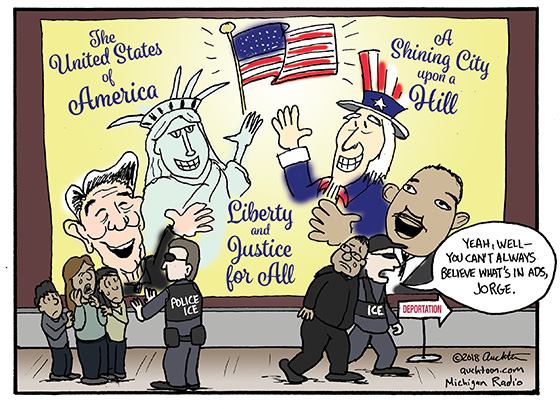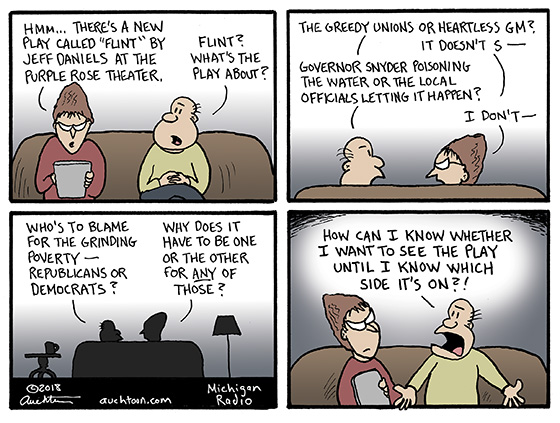And Now the Opposing View to Infrastructure Investment and Fiscal Responsibility…
Governor Rick Snyder delivered his final State of the State address this past Tuesday. It was, well, pretty much what we’ve come to expect from Snyder — a vaguely corporate PowerPoint presentation. That of course is in keeping with “business nerd” shtick, so no big surprise or disappointment.
The part I found remarkable was his emphasis on investing in our state (roads, education, etc.) and the need to commit to those investments by being good financial stewards. I know. Not exactly words that set your heart ablaze with passion, but still notable for their intention. We’ll see how it goes — Snyder’s past seven years of delivering on intentions can charitably be described as a mixed bag.
Still, his apparent desire for infrastructure investment with fiscal responsibility seems noble. In fact, if you were to ask me a few years ago the definition of conservative governmental policy, “infrastructure investment with fiscal responsibility” would be pretty close.
These day, pfffftttttt! (That’s me making a raspberry sound.) Conservative governmental policy has morphed into a groupthink that views all government as the enemy, as some sort of occupying force that needs to be dismantled and rendered unresponsive. This ideology has proven to be remarkably effective in benefiting its donors but also remarkably effective in starving our infrastructure while shirking fiscal responsibility.
This is what Governor Snyder is up against. The question is, in this last year in office, will he be a leader who delivers?






